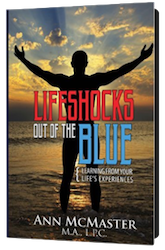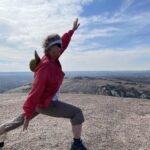Generating Fallow Time
I started this post as a completion of the "fallow" postings, and then got carried away by other things, so here is my last piece, at least for now, about fallow time.
My current thinking is that fallow time is just as important as productive time. It's a time for being internally receptive, allowing – allowing ideas, images, phrases, to bubble up from our heart, our innermost being … or to bubble in from the universe.
There are lots of ways to generate fallow time. Writing is one of my ways – especially writing without a subject in mind – just whatever is happening or is on my mind. Or sometimes I start with a title that appeals to me, and somewhere along the way, it morphs into something else, requiring a change of title.
And while I don't think of
myself as an artist (in the normal use of that word), I do like using
charcoal and oil pastels on paper. Because I am not an 'artist' (having to create something of value to others), I have internal permission to express my feelings or my 'un-languaged' thoughts. Some of these 'pictures' are
revelatory, some remain un-language-able, some are mystifying, and most seem to be satisfying somehow (even though I throw them away – they're 'done').
Then there is the story of Seymour Cray, the father of super-computing, who, when stuck on a knotty computer problem, would go into the hill behind his home, dig out this tunnel with a shovel, putting up the timbers to hold it in place. This physical activity would occupy his mind, so that the solution to the knotty problem could surface … which it invariably did.
Alternatives – showering, recognizing shapes that clouds make – especially effective when doing this with a child, waiting for faeries to appear, creating vision boards, gardening, daydreaming, meditation of all kinds.
What's your favorite way?





Mine is sailing (racing). While the races themselves aren’t fallow time by a long shot, our practice sessions can be, especially if we have more people on the boat than are needed for the tasks at hand, or if it’s not particularly windy. I can then lie on the foredeck (or on the trampoline, if the skipper has taken the trimaran out) and get back with the rhythm of the earth.
Other ways are singing, playing the piano, reading, painting and, believe it or not, cleaning up the kitchen after my hubby has cooked a big meal. Lots of ideas come when my hands are in warm, soapy water! It’s meditative to me.
There are times when I can “feel” (or think I can) an answer trying to break through to the surface. I’ll even catch myself squinting in an attempt to see it–which, sometimes, actually works. Other times, I walk away from the effort. I might literally get up and walk away, or simply move on to something else, maybe another project, a book, or some brain-dead activity like television. Likewise, when I’m trying to recall something, I might “feel” the answer just below the surface, or it might seem utterly remote. Especially in the latter, case, I put my brain into “search” function and walk away. Almost always gets a result, though sometimes the answer pops up at awkward moments like, say, the middle of a conversation. Thing is, if I don’t tag the answer by saying it out loud or writing it down, I might lose it.
One thing about us aging folks: If we’re not continually building new neural networks through learning new things–a new language, studying this or that– those age-related mini-strokes can cut the pathways down which memories and other information travel.